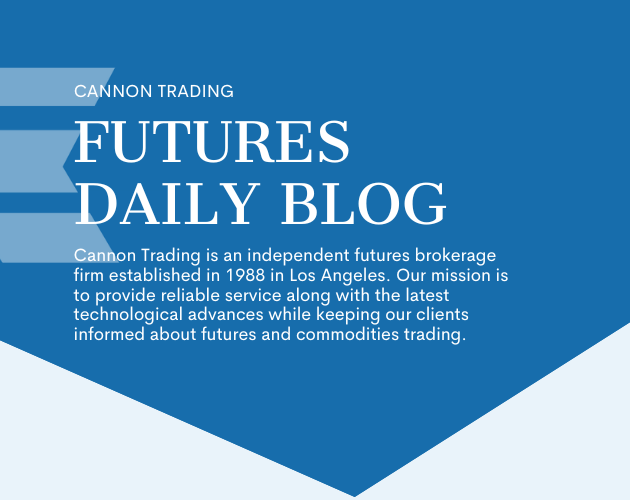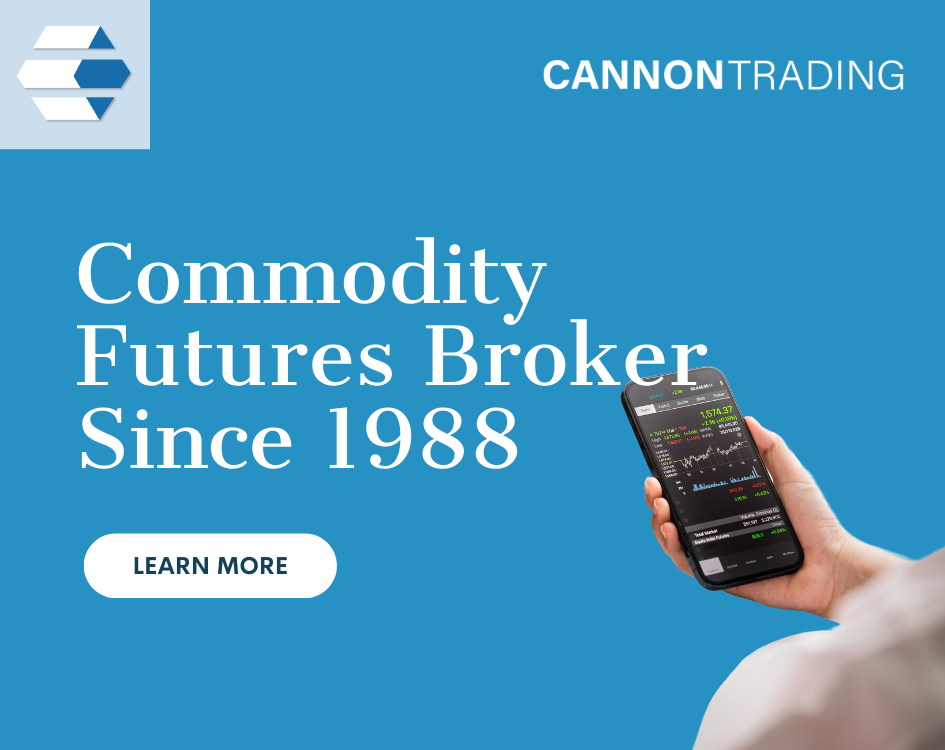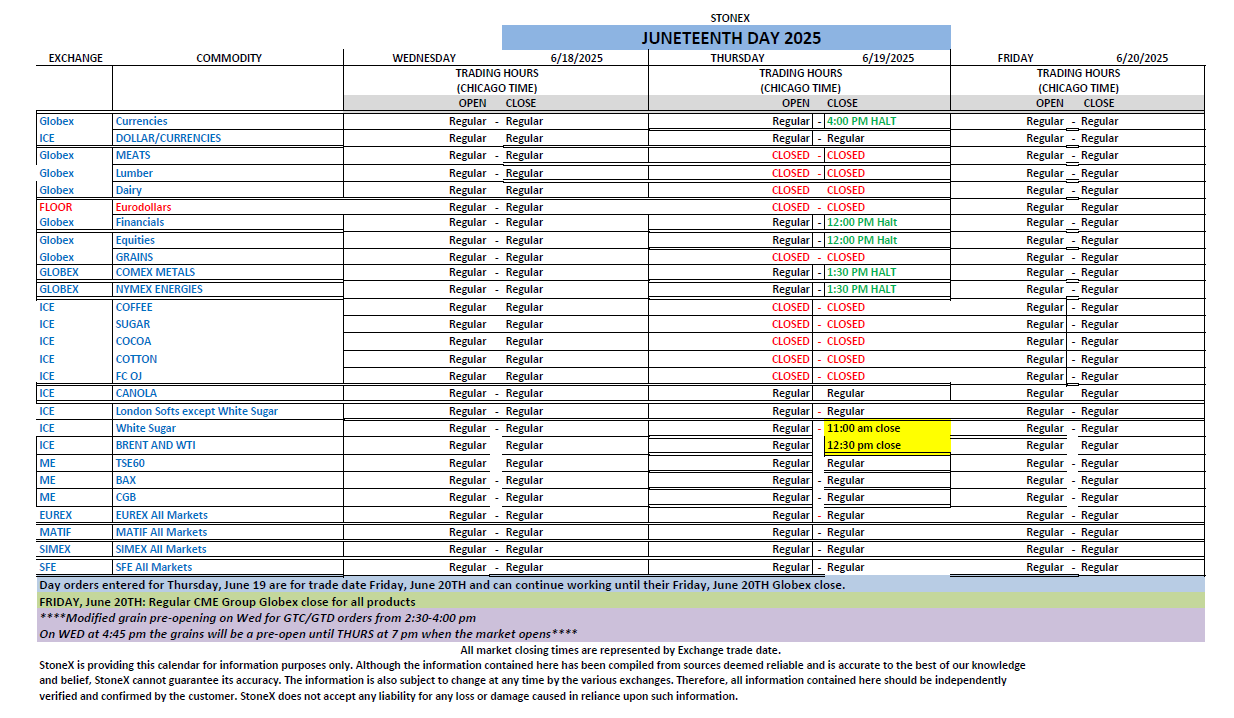| General:
The Federal Reserve held rates steady for a fifth straight meeting today but faced rare dissents from two officials seeking an immediate cut. Officials maintained their benchmark policy rate in a range between 4.25% and 4.5%. Dissent came from two Fed governors and marks the first meeting since 2020 in which more than one Fed official voted differently than chair Powell, and the first since 1993 in which more than one board governor dissented.
Grains: Soybean, Corn
Chicago Board of Trade soybean futures fell for the fourth consecutive session today, dragged down by favorable weather across the U.S. Midwest and sluggish export demand, analysts said. Weighing on prices were forecasts for cooler temperatures and periodic rainfall in the U.S. Midwest, bolstering expectations for big U.S. soy and corn harvests. Prior to tomorrow’s First Notice Day for the contract, August futures touched $9.77 3/4 per bushel, its lowest price of the year. Sept. corn futures matched yesterday’s intraday low of $3.87 3/4 per bushel, nearly a 2-year low.
Energy: Crude Oil
Crude futures rose for the third day, buoyed by concerns U.S. sanctions could reduce flows of Russian crude, optimism over trade deals such as those with the EU and Japan.
Focus ahead will be on the weekend meeting where OPEC+ will determine September output levels. The September West Texas futures contract on the NYMEX traded above $70/barrel for the first time since June 23, a ±$5.00/barrel in three trading sessions, equal to a $5,000 per contract move.
Metals: Copper
Last week, copper futures hit a new record high with the front month September contract trading to $5.9585/lb. Today, U.S. President Donald Trump signed a proclamation ordering 50% tariffs on certain copper imports, citing national security. However, the levies applied only to semi-finished products, such as copper pipes and wires and so-called derivate products such as pipe fittings and cables. It excluded refined materials such as copper ores and concentrates. Reacting to the anticipated limited impact on the base metal, September copper futures plunged over $1.20/lb. to below $4.60/lb. – a ±19% drubbing and a ±$30,000 per contract move for the contract, the largest single-day decline since 1989. |


















